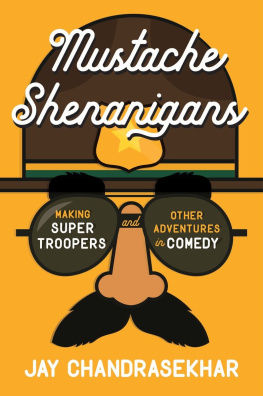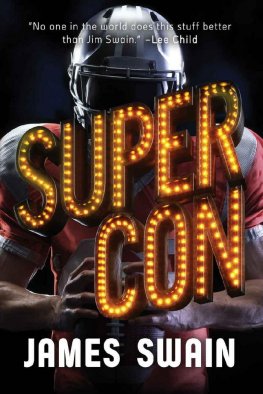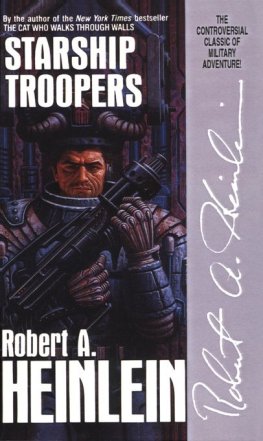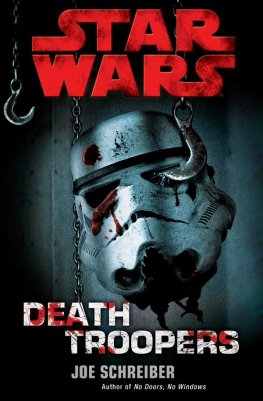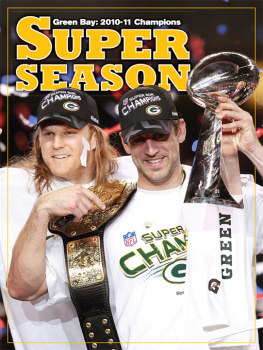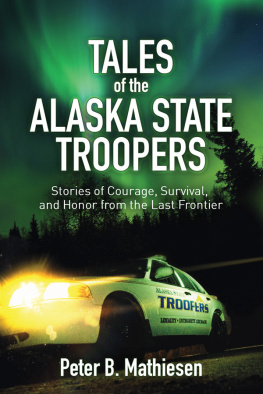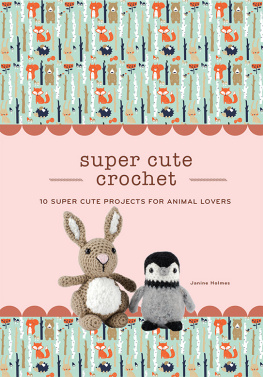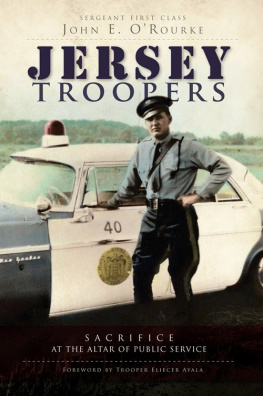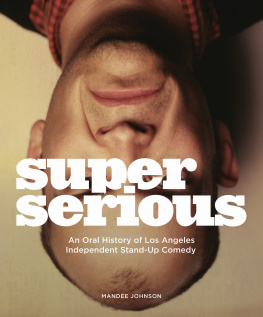Penguin supports copyright. Copyright fuels creativity, encourages diverse voices, promotes free speech, and creates a vibrant culture. Thank you for buying an authorized edition of this book and for complying with copyright laws by not reproducing, scanning, or distributing any part of it in any form without permission. You are supporting writers and allowing Penguin to continue to publish books for every reader.
DUTTON is a registered trademark and the D colophon is a trademark of Penguin Random House LLC.
has been applied for.
All photographs are courtesy of the author unless otherwise noted.
While the author has made every effort to provide accurate telephone numbers, Internet addresses, and other contact information at the time of publication, neither the publisher nor the author assumes any responsibility for errors or for changes that occur after publication. Further, the publisher does not have any control over and does not assume any responsibility for author or third-party websites or their content.
All photographs are courtesy of the author unless otherwise noted.
This book is dedicated to the many hilarious people whom Ive been lucky to call friends.
INTRODUCTION
E very morning, at my small, private, suburban Chicago grade school, we all stood and said the Lords Prayer. It didnt matter that I wasnt Christian. I loved it anyway. Afterward, we put our hands on our hearts and recited the Pledge of Allegiance. I loved that too. Saying those words, along with my 250 schoolmates, made me feel like I was part of a tribe. And I needed to be part of a tribe. Perhaps starting Broken Lizard (our own little tribe) is evidence of my continuing need.
They say that first-generation Americans are highly patriotic. For me, that was true, and it still is.
We hold these truths to be self-evident, that all men are created equal.
As a kid, I loved those words. Those words meant that, though my sister and I were the only Indian kids around for miles, we were still equal. Eventually, I came to learn that Jefferson didnt mean for it to apply to people who looked like me, but thanks to Dr. King, President Johnson, and many others, equality became the law of the landfor everybodyand I intended to hold America to its word.
My parents were like propaganda specialists, instilling in me the idea that I could accomplish anything I set my mind to. America was fair and rewarded hard work. They drowned me in compliments, telling me how smart and good-looking I was, regardless of evidence that I was never much better than a B student and I was, objectively, an awkward-looking child. Its like their plan was to stuff me with confidence, hoping to stay ahead of the real (racist) world that was bound to break my heart. It worked, because if you looked at my grade-school notebooks, youd find whole pages filled with the words Jay the Great.
Even the name my parents gave me oozed confidence. My full name is Jayanth Jumbulingam Chandrasekhar, which literally translates to Victorious Large-Penis Rising Moon. Its a family name. Though they never told me about the large-penis part. Instead, I found out at age twenty-five, from an Indian friends mom, who saw Jumbulingam in the credits of our short film and burst into laughter. When my friend called to tell me the good news, I immediately called Mom.
Does my middle name mean large penis? I asked pointedly.
She laughed. Well, literally, sure, but its really just a euphemism for power.
You could have told me that earlier, Mom, I said, truly annoyed. It might have been helpful.
When I was young, I didnt understand that my color might be a hindrance to my dreams. And like any kid, I had big dreams... eventually. At age five, I wanted to be a garbage man so I could drive one of those big red trucks. Soon after, I decided I would follow my hero, Walter Payton, and be the starting running back for the Chicago Bears (yes, the first Indian in the NFL). Later, thanks to Muhammad Ali, I wanted to be the heavyweight boxing champion of the world (yes, the first Indian in professional boxing). President of the United States was a possibility (first Indian...). Heart surgeon was seriously considered (not the first Indian). My race didnt matter. In my mind, I was great, and if I worked hard, America would reward me.
Then I grew up and realized that life was more complicated. Inside, I was a red-blooded American, but thats not how I was perceived by strangers. For example, I was able to get girls, but only after months and months of a personality-driven long game. I had to use wit, charm, and friendship before lips ever touched, before I could get what my white friends just seemed to be handed. Racial reality didnt dissuade me from the idea that I could do great things, but it did teach me that I would likely have to work twice as hard as everyone else and would probably have to create my own path to get there.
Oddly, my being Indian is the very reason I made it in Hollywoodbut not because there were racial quotas for Indians. No. In fact, it was just the opposite. When I was twenty-two, anyone with half a brain would tell you that my chances of making it as an actor, never mind a director, were less than zero. Because one had only to look at TV and movie screens to see that there wasnt a single Indian face on them. Well, there was one face: Ben Kingsley had played Gandhi and had won an Oscar for it. But Gandhi was also the only Indian Hollywood would ever make a movie about.
I had been acting in plays in high school and college, and I was playing leads. But the best I could hope for in real show business was playing the convenience store clerk, the cabdriver, or maybe a terrorist. Though, back in the eighties, Germans usually got those roles. Ah, such an innocent time. And I didnt want to play those characters. I wanted to play characters in movies that spoke like me, characters who had my own, American, accent. That, however, had never been done. All of the roles for Indians were small and/or accented and, frankly, played by white guys. When there was a major role for an Indian, Hollywood turned to a white actor and put him in brownface. Peter Sellers was great in The PartyBirdie num num. Fisher Stevens played an Indian in Short Circuit 2, a film my dad counted among his favorites. When I asked him why, Dad said, Because theres an Indian in it!
When I told him that Fisher Stevens wasnt Indian, Dad shrugged. Eh, its as close as well get. Those words stuck with me. This was America.Was that really the ceiling for me?

